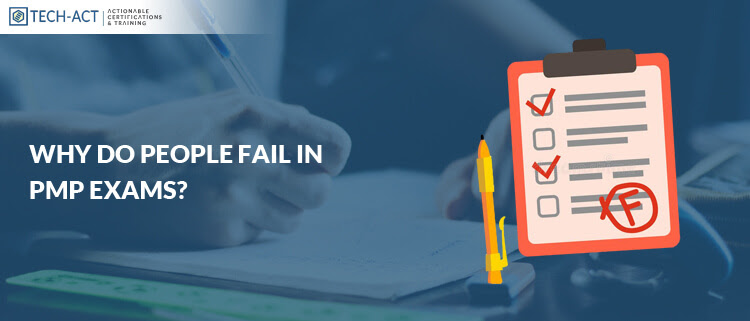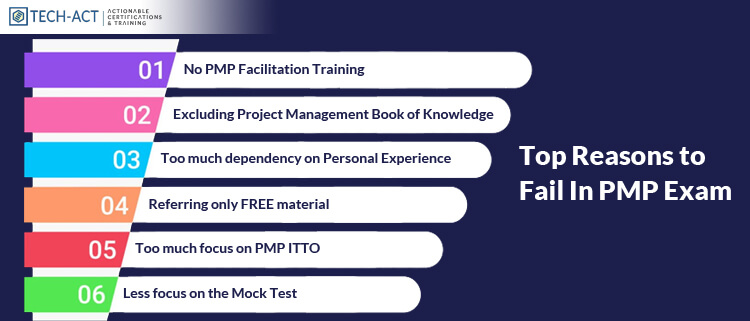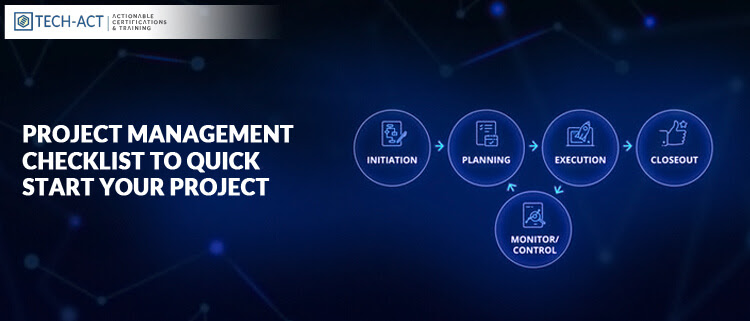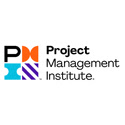Top Reasons Why People Fail In PMP Exam

Are you aware about the failure rate in PMP exams? Well, when we look at the experience of people appearing for PMP exams they say that the chance of passing the exam is 50%. However, this is only an assumption as none can say the exact percentage. PMP is a very well-recognized certification among the other certifications available in the market; hence PMP exam is a challenge to crack.
But if you have made your mind, then the rate of failure shouldn’t worry you. Your focus should be rather on how you would be successful in your exam. Some great people once said “Learn from the mistakes”. Now this doesn’t mean that you need to fail once to identify the errors…..but you need to learn from the mistakes of those candidates who were not successful in the test. Let’s take a look at the top reasons for failing in PMP certifications and the learning that we can take away from it.

1. No PMP Facilitation Training: No PMP Facilitation Training: Anyone who aspires to appear for the exam needs to complete the PMP facilitation training which is of 35 contact hours. The requirement can be fulfilled even by attending any workshop of project management. Lot of candidates who already bring in 35 contact hours, they avoid going for the formal PMP facilitation training. This certainly helps them in saving few bucks initially, but later they end up reappearing for the exam. PMP exams are not a cake walk, it requires systematic preparation and PMP facilitation training is must to make sure that you are well prepared. PMP training is not an expenditure it is an investment which is worth making.
2. Excluding Project Management Book of Knowledge: Candidates appearing for the PMP test usually skip the PMBOK guide as they feel it is boring and lengthy. However, if you refer PMBOK, you would be able to perform better in the test. Various books are available in the market for the reference but PMBOK is the recommended one. PMBOK includes important topics like project management processes, best practices and guidelines. Hence, PMBOK is a must before the test.
3. Too much dependency on Personal Experience:
Candidates taking the test are usually highly experienced. This makes them over confident and highly dependable on their own personal experience. While answering the PMP test, their answers are based on the gained experience as they believe that it is the only right way. They forget that the exam is based on PMBOK as it tests your knowledge of the theory and concepts which are described in the guide. Understanding the concept becomes easier along with the experience but experience alone cannot assure success in the test.
4. Referring only FREE material:
There is no harm in referring free material but it is not very reliable. Many times free contents are very old and outdated, mock questions would not have any proper explanations and the quality of the material can be substandard. This increases the chances of failure in the exam. Even if one wants to refer the free content then the recommended ones are those published by reputed training companies. It’s very important to have a balance in your preparation i.e. reliable free content and standard quality paid content
5. Too much focus on PMP ITTO:
Candidates appearing for the test do a very common mistake of mugging up the PMP ITTO. ITTO is just a tip of the iceberg; the bottom is the key concepts and PMI-isms. Questions in the exam will be situational (case based), hence if the concepts are not clear then memorizing will surely not help.
6. Less focus on the Mock Test:
Candidates need to take lot of mock tests before appearing for the PMP exam. There is a need for lot of practice. Make sure that you choose a training course which provides multiple practice tests. Keep the scoring consistent i.e. 80% in the entire mock test which in return increases your chances of success.
Here, I have highlighted top reasons of why candidates appearing for the PMP test face the failure. Hope this will help you in your preparation for the PMP test. So what are you waiting for? Check out our link on Top tips to crack the PMP exam.
Are you aware about the failure rate in PMP exams? Well, when we look at the experience of people appearing for PMP exams they say that the chance of passing the exam is 50%. However, this is only an assumption as none can say the exact percentage. PMP is a very well-recognized certification among the other certifications available in the market; hence PMP exam is a challenge to crack.
But if you have made your mind, then the rate of failure shouldn’t worry you. Your focus should be rather on how you would be successful in your exam. Some great people once said “Learn from the mistakes”. Now this doesn’t mean that you need to fail once to identify the errors…..but you need to learn from the mistakes of those candidates who were not successful in the test. Let’s take a look at the top reasons for failing in PMP certifications and the learning that we can take away from it.

1. No PMP Facilitation Training: No PMP Facilitation Training: Anyone who aspires to appear for the exam needs to complete the PMP facilitation training which is of 35 contact hours. The requirement can be fulfilled even by attending any workshop of project management. Lot of candidates who already bring in 35 contact hours, they avoid going for the formal PMP facilitation training. This certainly helps them in saving few bucks initially, but later they end up reappearing for the exam. PMP exams are not a cake walk, it requires systematic preparation and PMP facilitation training is must to make sure that you are well prepared. PMP training is not an expenditure it is an investment which is worth making.
2. Excluding Project Management Book of Knowledge: Candidates appearing for the PMP test usually skip the PMBOK guide as they feel it is boring and lengthy. However, if you refer PMBOK, you would be able to perform better in the test. Various books are available in the market for the reference but PMBOK is the recommended one. PMBOK includes important topics like project management processes, best practices and guidelines. Hence, PMBOK is a must before the test.
3. Too much dependency on Personal Experience:
Candidates taking the test are usually highly experienced. This makes them over confident and highly dependable on their own personal experience. While answering the PMP test, their answers are based on the gained experience as they believe that it is the only right way. They forget that the exam is based on PMBOK as it tests your knowledge of the theory and concepts which are described in the guide. Understanding the concept becomes easier along with the experience but experience alone cannot assure success in the test.
4. Referring only FREE material:
There is no harm in referring free material but it is not very reliable. Many times free contents are very old and outdated, mock questions would not have any proper explanations and the quality of the material can be substandard. This increases the chances of failure in the exam. Even if one wants to refer the free content then the recommended ones are those published by reputed training companies. It’s very important to have a balance in your preparation i.e. reliable free content and standard quality paid content
5. Too much focus on PMP ITTO:
Candidates appearing for the test do a very common mistake of mugging up the PMP ITTO. ITTO is just a tip of the iceberg; the bottom is the key concepts and PMI-isms. Questions in the exam will be situational (case based), hence if the concepts are not clear then memorizing will surely not help.
6. Less focus on the Mock Test:
Candidates need to take lot of mock tests before appearing for the PMP exam. There is a need for lot of practice. Make sure that you choose a training course which provides multiple practice tests. Keep the scoring consistent i.e. 80% in the entire mock test which in return increases your chances of success.
Here, I have highlighted top reasons of why candidates appearing for the PMP test face the failure. Hope this will help you in your preparation for the PMP test. So what are you waiting for? Check out our link on Top tips to crack the PMP exam.





























